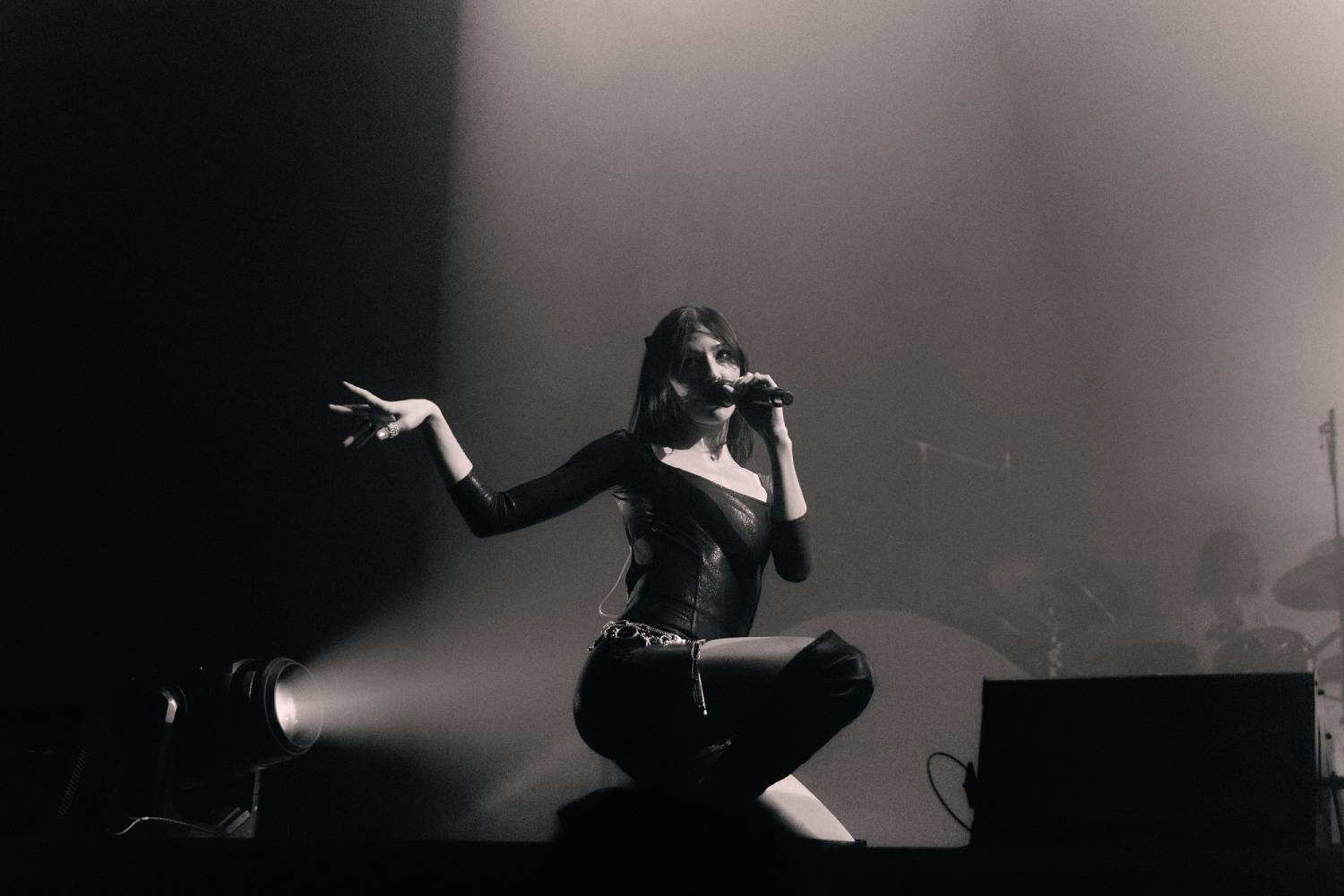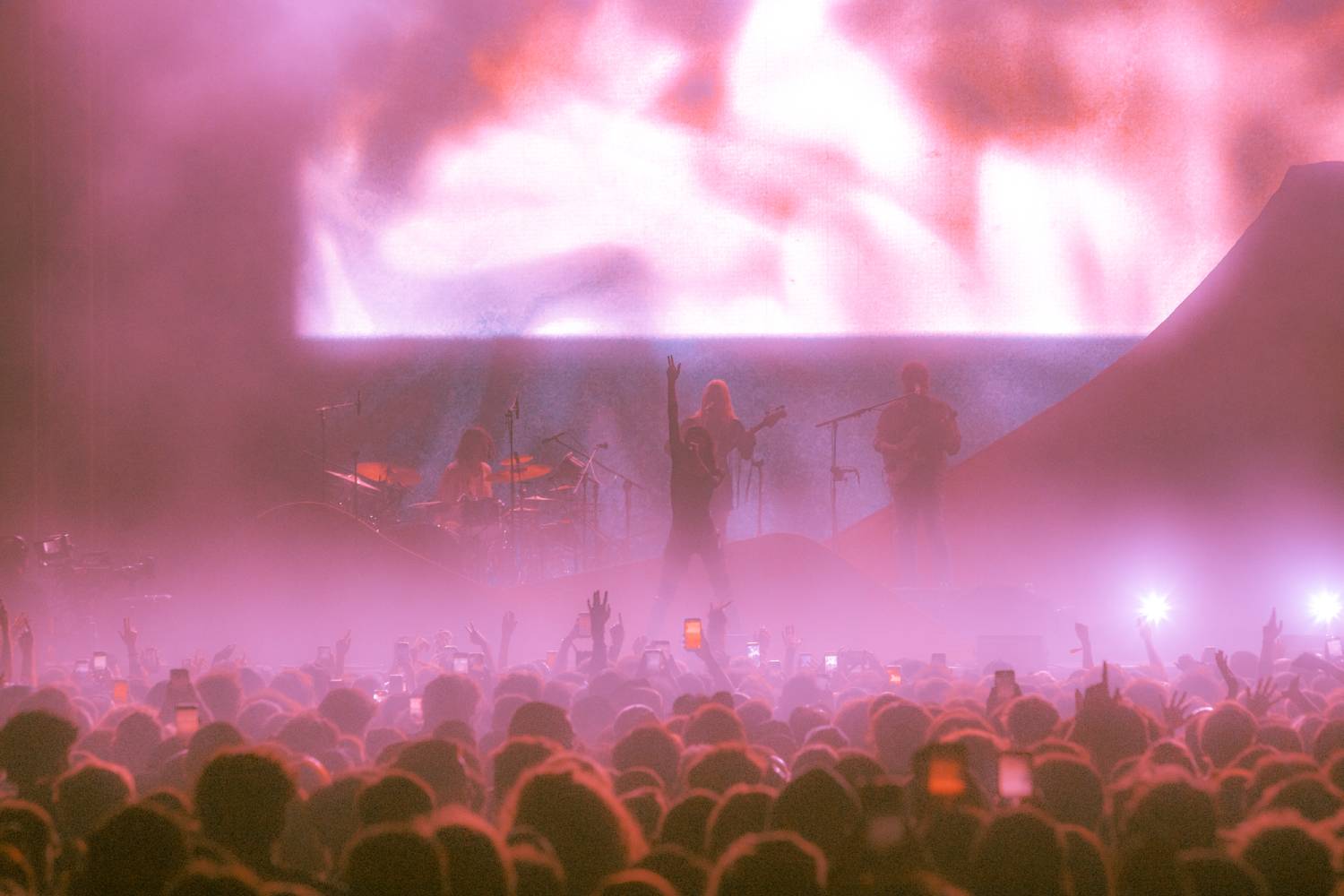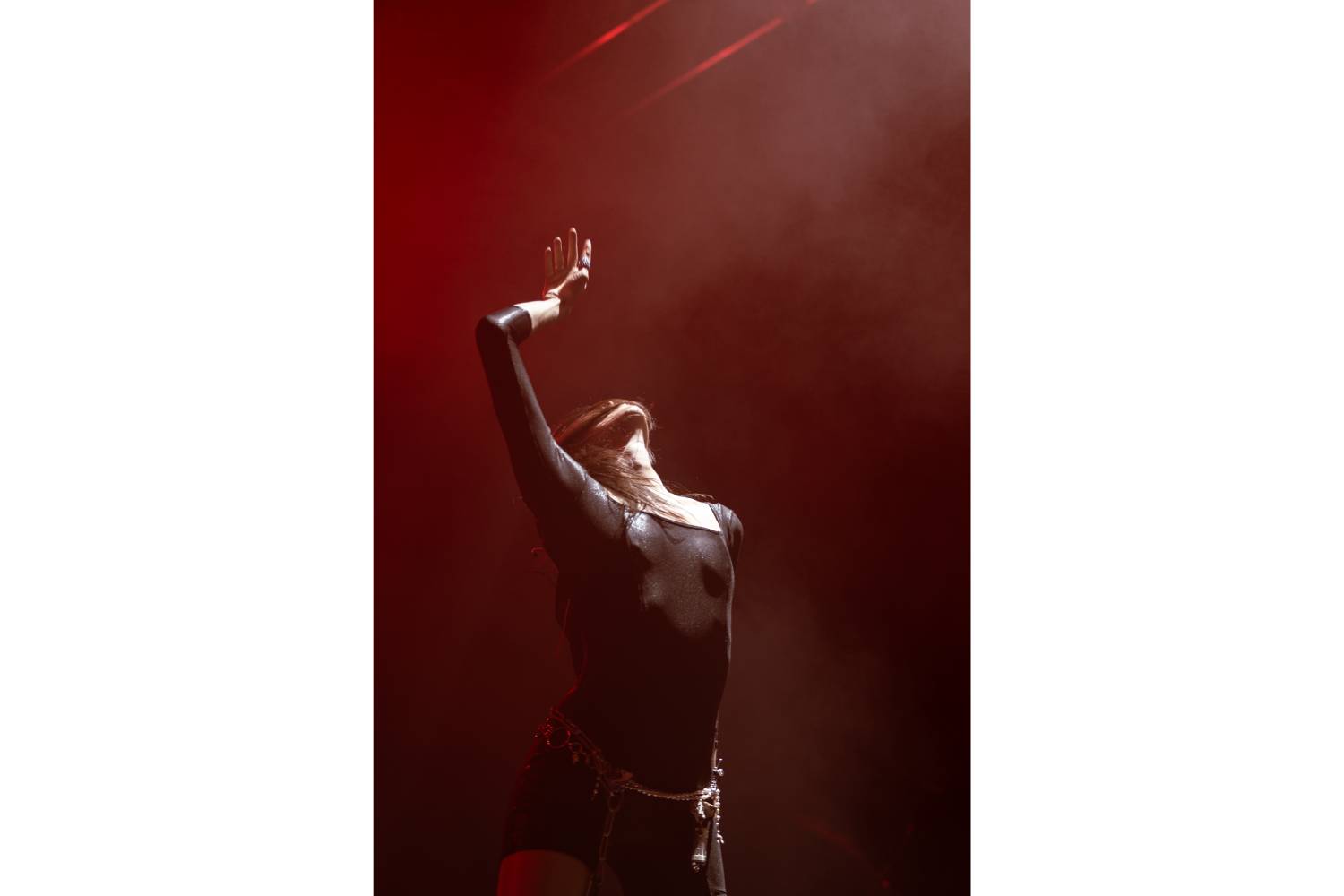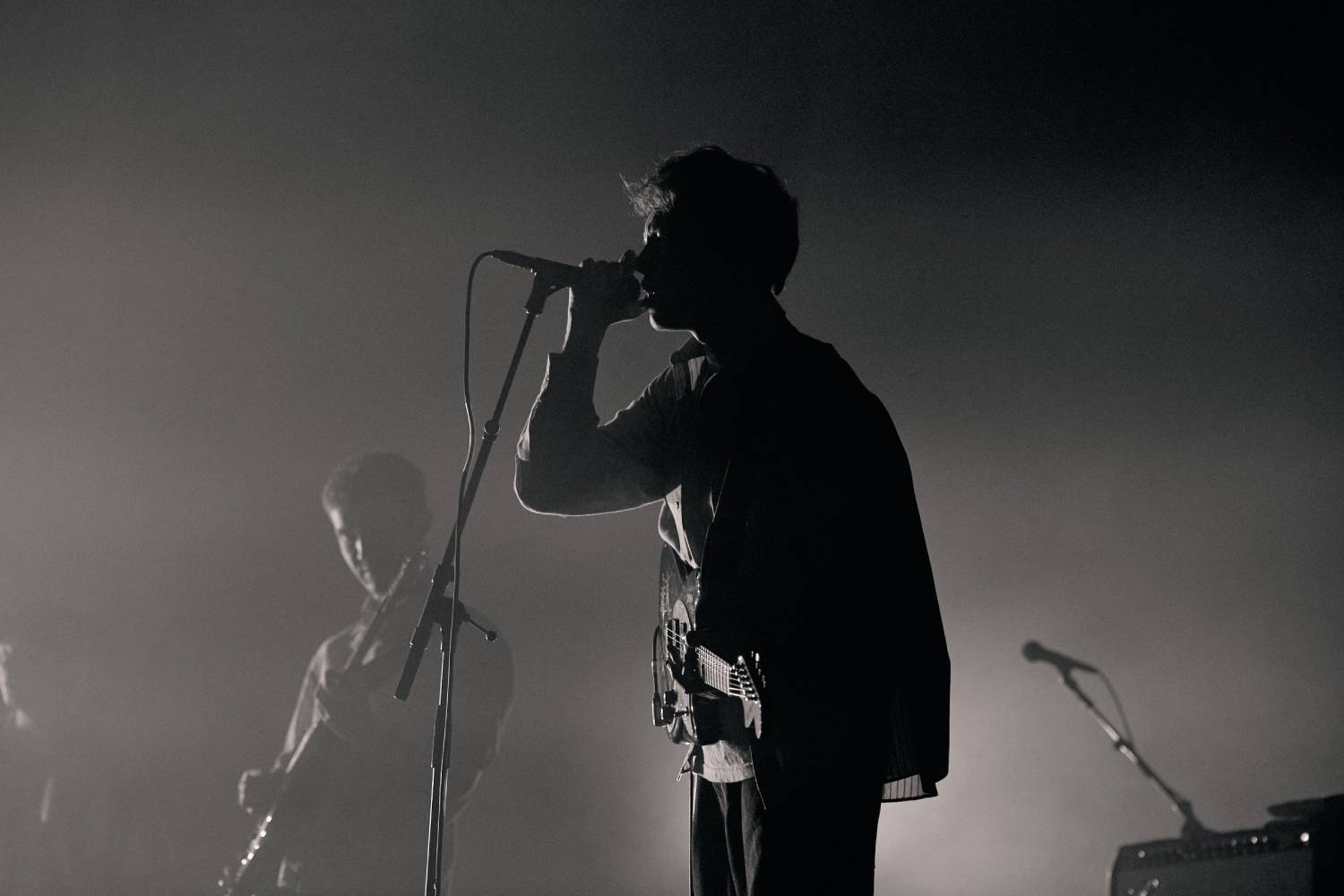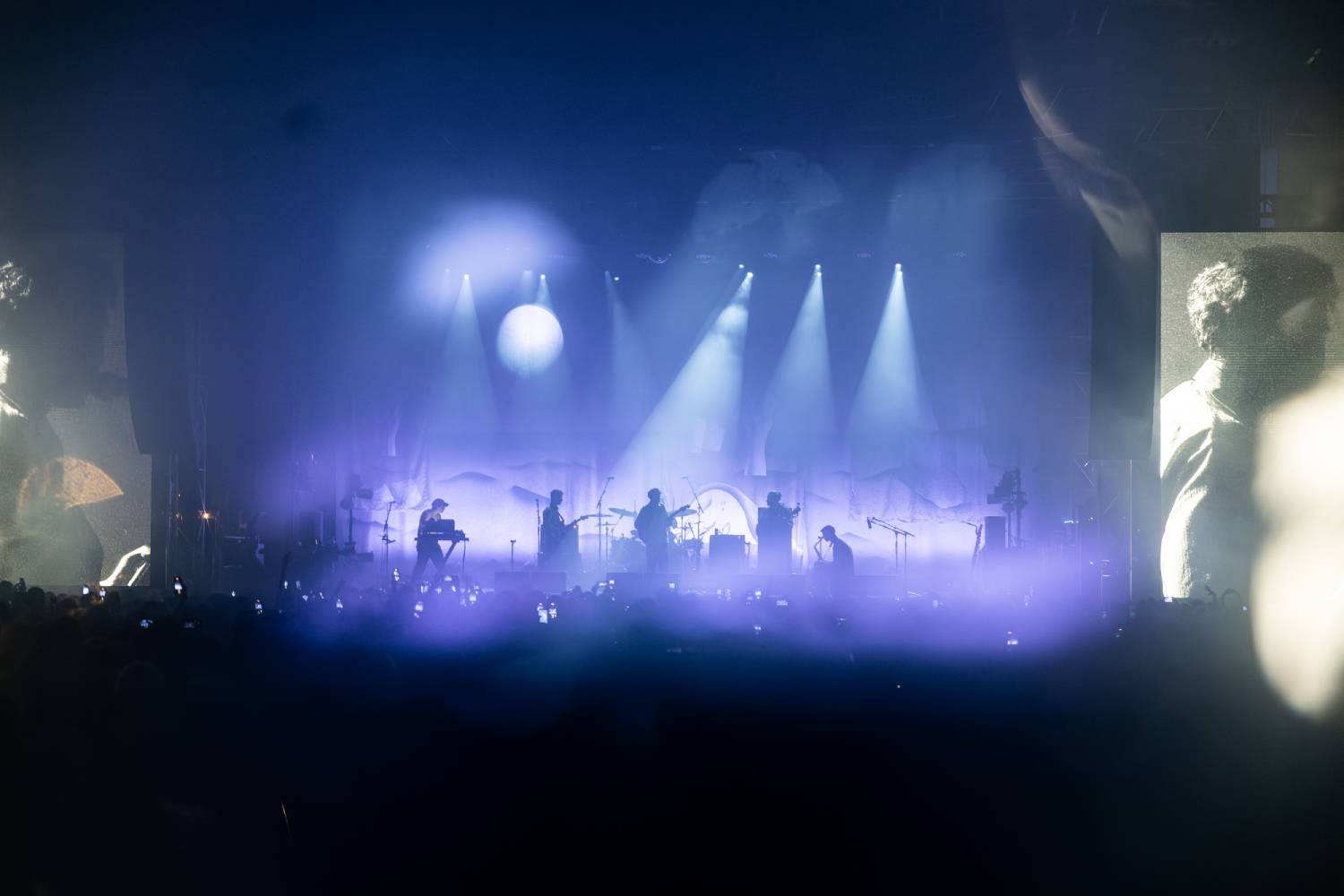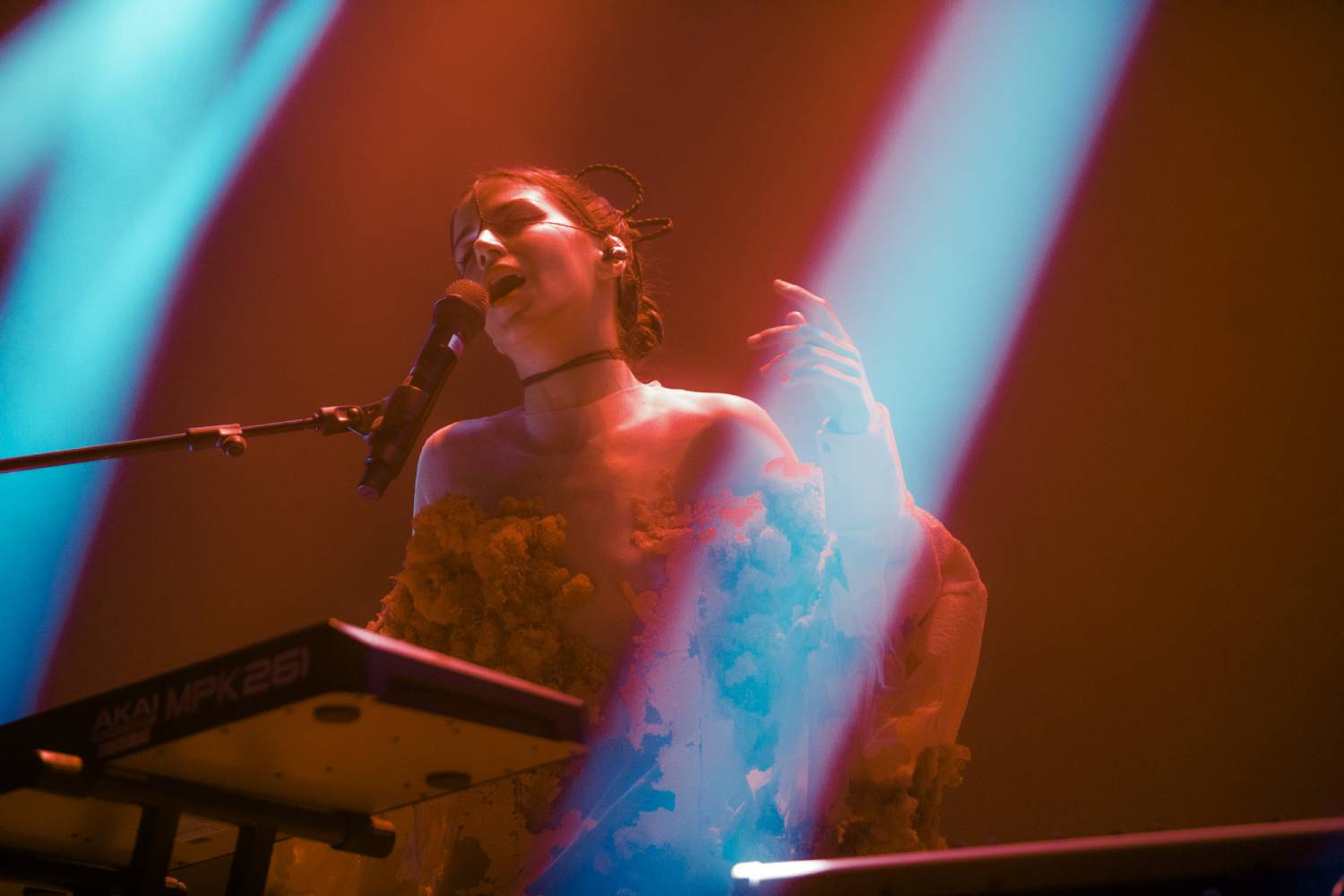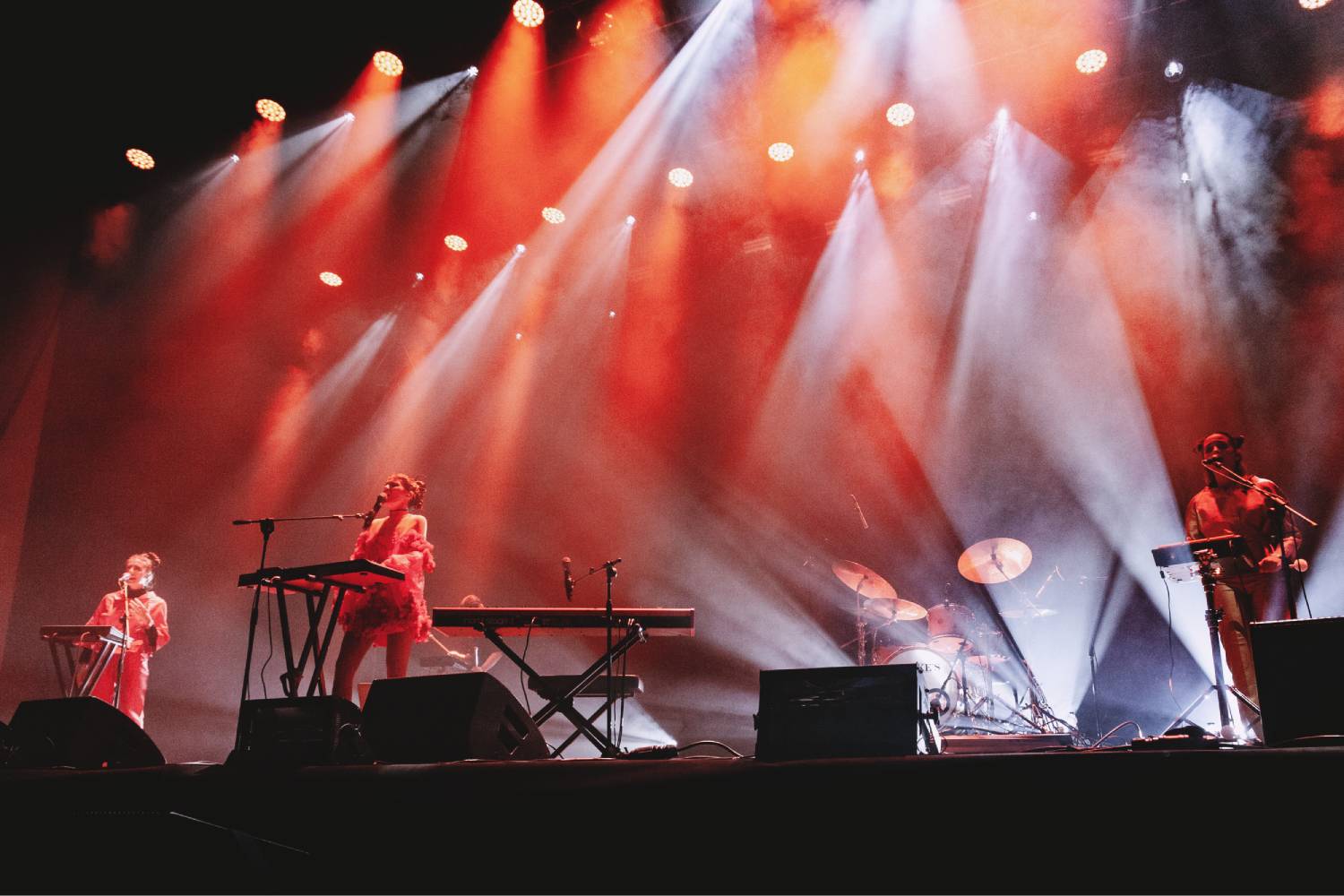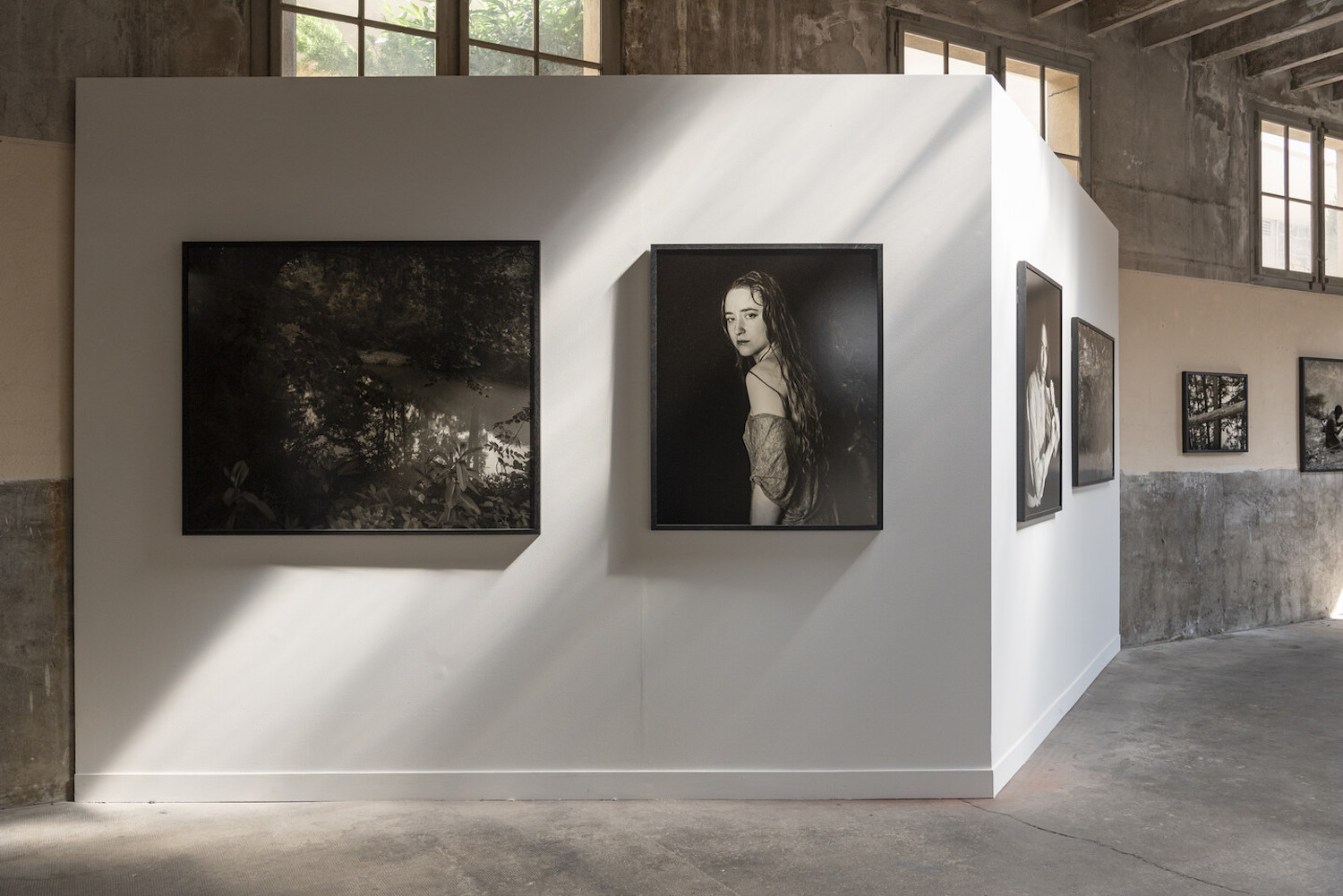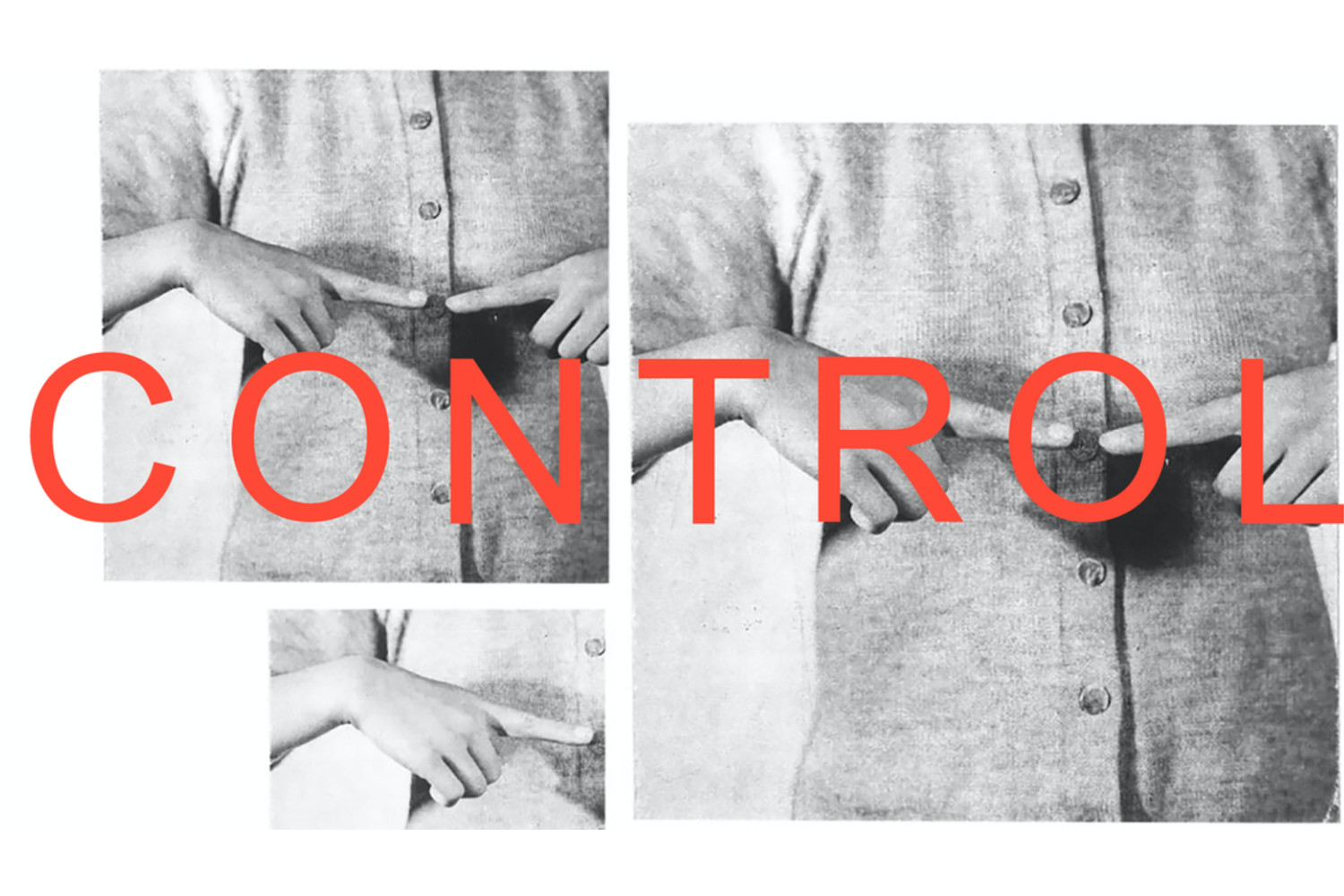“I love that there are only two big stages,” said Marina Herlop. “That way you can see everything that’s going on. You don’t miss any live shows.” The Catalan singer was holding a can of beer in her left hand while trying to film a performance by her friend and colleague, Lucrecia Dalt, with her right hand. Aside from a few quickly resolved technical glitches, Dalt’s live performance was one of the highlights of Friday night’s C2C Festival, hosted in the big halls of the Lingotto, in Turin.
Accompanied by a percussionist with shamanic, almost possessed movements, Dalt’s synth-soaked boleros dropped an intimate, warm blanket on the immense spaces of the former FIAT factory. Until the early 1980s, the Lingotto gave birth to millions of cars for the use and consumption of the Italian working class. Today, its giant exoskeleton houses a convention center and, for one weekend a year, one of Europe’s best festivals.
“In the last two years we have done more than one hundred dates. It’s been very intense,” confided Herlop, who had just been onstage with two backing vocalists and a percussionist crafting the electronic, xeno-fabulous landscapes of her last two albums, Pripyat and Nekkuja, with her voice and keyboards. “But there’s an energy when playing in front of so many people that nothing else can give you. It was one of the most important dates of the year.”
There has never been a C2C Festival with so many live performances as 2023’s edition. Club To Club started twenty-three years ago — precisely because audiences moved from club to club in Turin to follow its program — and has had a very substantial, and now radical, evolution.
Underlying it all, the Turin event has, over time, coined an ingenious term that remains consistent: avant-pop.
In a world where boundaries between genres, whether artistic or otherwise, want to be crossed, C2C welcomes everyone under one roof and into one big family. “We Call It Avant-Pop” is the manifesto, the artery that irrigates and connects all the vital organs of the C2C organism. It has also officially become a photo book.
“The idea for the book was born a long time ago, when even to us it still seemed crazy to call King Krule to play free jazz with guitars and saxophones,” says Guido Savini, half-jokingly. He is one of the minds behind the festival’s artistic direction, together with founder Sergio Ricciardone. “Flipping through the pages for me is emotionally intense, because it documents all of the crazy things we have done in our twenty-three-year history. Twenty-three editions, two of which were during the pandemic and were perhaps the craziest.”
Thus, under the banner of avant-pop, unique confluences occur, such as Caroline Polachek’s DJ set at OGR on Thursday, November 2, and her live show the at Lingotto the next day. Needless to say, the DJ set was fun because it was unusual, surreal, and studded with Italian pearls, from Matia Bazar to Myss Keta. But the live show was truly electrifying. “Some of the tracks on this album were recorded in Sicily, and I think you can clearly hear that,” Caroline told the crowd before the Mediterranean guitar intro of “Sunset” set them roaring. Like an updated internet-era version of Geri Halliwell’s “Mi Chico Latino,” the American singer plays heavily on the exotic atmospheres of warm countries in her latest (avant) pop masterpiece, Desire, I Want to Turn Into You. The stark difference with anyone who came before her, however, was disarming in its evidence. In the Fordian chain that produces copy after copy of pop singers, Caroline Polachek is a marvelous anomaly, with a mezzo-soprano vocal register, a magnetic stage presence, and an over-the-top taste in producers, from Sega Bodega to Danny L. Harle (who has already gravitated around C2C events before).
It is no coincidence that certain names come up when talking about the C2C Festival. Celebrating avant-pop means not only giving space to performing artists, but also to those who usually stand on the opposite side of the mixing board in the studio. Kelman Duran, the guru of Latin beat experimentation, who on Saturday along with Florentino and DJ Python put the Stone Island Stage loudspeakers to the test, produced no less than the opening track of Renaissance, Beyoncé’s latest album.
Aside from epic moments, such as Two Shell’s dystopian hyperpop that culminated in a high-octane remix of Avril Lavigne’s “Complicated,” or the violent kicks resonated by Evian Christ, it would be hypocritical to deny that the highlight of the whole weekend was King Krule.
“It was a very intimate live show,” Archy himself told me while smoking a cigarette backstage, his two silver teeth shining under the neon lights. “Playing in Italy always turns out to be so much fun. Even the fake King Krule merchandise I found outside the venue is incredible. The biggest regret I had the last time I played in Milan was not being able to get one of those beautiful T-shirts.”
Archy is a very British guy with witty banter, who is nearing the end of nearly a hundred days of touring. “I’m starting to feel tired. A few more dates in Paris and then it’s over. I need some rest at home with my family.” There was no fatigue evident, however, in his hour-plus live performance in Turin: just feverish free jazz arrangements with a tight, cohesive lineup and a solid post-punk backbone.
King Krule is like a little Messiah coming from a hypothetical union between Chet Baker and Gang of Four. He roams around the world to spread the message with his band of troublemakers. And the message is that you can still make pure, original, exciting music, and you can do it in the most fun way there is: live. And by “pure,” I mean that Kanye West himself asked him to collaborate a few years ago, but Archy politely declined the offer because he didn’t find much musical affinity. I wonder how many people in his place would have done the same.
“Always release your feelings,” said the red-haired boy toward the end of the concert, just before Ignacio, the saxophonist, put down his instrument and started free-body dancing, bewitching the entire main stage audience. It was a magical instant, a carefree limbo amid a worldwide tempo (again, this year’s festival theme) punctuated by atrocities, the consequences of which directly affected the event.
On the very same night as King Krule, four Palestinian musicians, Shabjdeed, Al Nather, Daboor, and Mouri, were scheduled to perform on the other stage, in a showcase by the Ramallah-based independent label BLTNM. There was no showcase, but no substitution either. There was emptiness, silence, which can sometimes be louder than music.

